HMI offers a rigorous academic curriculum that prepares students for success in the remainder of high school and beyond. We design our courses to closely align with the honors and AP-level courses at our sending schools in order to facilitate smooth transitions for our graduates. Fall semester students can expect to return home ready to begin the second half of common year-long courses at their sending schools (U.S. History, precalculus, etc). Spring semester classes pick up roughly at the midpoint of the year and complete course work so that students are prepared for classes in their senior years. HMI is accredited by the Association of Colorado Independent Schools, an affiliate of the National Association of Independent Schools. Our transcripts and credit are therefore accepted by public and private schools across the country.

Honors & AP-Level Courses

Alignment with Home Classes

Accredited Transcript
Explore our courses
Practices and Principles: Ethics of the Natural World (P&P) is a unique and unifying course–one of two courses taken by all students in the HMI Semester. The P&P curriculum is taught both on wilderness expeditions and in a classroom setting on campus. There are two principal goals of P&P. First, to equip students with the skills necessary to camp and travel safely in the wilderness for extended periods of time. And second, to challenge students to think critically about the way in which they interact with, use, and conceive the natural world. On backpacking expedition, students practice technical skills such as map reading and backcountry cooking as well as soft skills like leadership, risk management, and communication. In the classroom, students engage with various ethical philosophies dealing with human relationships to the natural world.
Students in Literature of the Natural World examine humankind’s changing relationship to nature from the early Western frontier to the present day and the role literature plays in creating and reflecting this relationship. While reading Norman Maclean’s elegiac novella “A River Runs Through It,” students explore how humans use experiences in nature to cope with loss. Next, they looke at gender in the American West through a series of short stories by Annie Proulx, Maile Meloy, and Mary Austin. Students hone their skills in literary analysis by dissecting the interplay between identity and nature in Leslie Marmon Silko’s challenging novel Ceremony. Lastly, they investigate literature of wanderers and considere the difference between wandering by choice and forced wandering. Students compose two analytical essays, a variety of poems, and a portfolio including erasure poems, research poems, and a choice of another creative piece. They also complete short in-class writing assignments daily. Writing-skills practice and grammar instruction guide students to expand their understanding of the mechanics of the English language and multiple revisions allow students the opportunity to refine their work and reflect on their development as writers. Finally, student-centered discussion formats challenge them to manage productive discussions in class without teacher intervention.
Natural Science cultivates students’ curiosity and refines the ways in which they observe, interpret, and describe the natural world. In addition to studying a rich curriculum that focuses on local ecology, geology, biology, and environmental science, students develop research and data analysis skills that allow them to culminate the semester by conducting an independent research project, writing a technical scientific paper, and presenting their findings via a Ted-Talk. Through interactive classwork and outdoor investigations, students study the Lake County watershed by examining forestry case studies, predator prey dynamics, water quality, and restoration ecology. On campus and on expeditions, students analyze environmental degradation and study landscape patterns, improving their ability to think independently and critically about the contentedness of ecosystem components. Further, students develop original research projects in which they make detailed observations, generate ecological questions, form hypotheses, design rigorous scientific studies, and present their findings using diverse strategies to reach specific audiences. For example, students learn about historical mining practices, design their own research projects on the water quality impacts of Acid Mine Drainage, and then engage with local stakeholders to present their research and understand its immediate and long-term implications.
In United States History: Western Perspectives, students engage with defining questions of the American past from a variety of perspectives. With historiography, freedom, and the relationship between the individual and society serving as overarching themes, students rely on an array of primary and secondary source documents as a foundation for analysis. After beginning with a western regional focus, our purview expands to encompass the ideology of the “global west.” Students consider concepts such as the frontier, modernity, race, postmodernity, power, and imperialism through the work of Richard White, Patricia Nelson Limerick, Michel Foucault, James Baldwin, and others. Throughout the course, students analyze art, literature, and music—in addition to historical events and themes—to consider how cultural products inform and transform American identity.
In Advanced Placement United States History, students use the tools of the historical discipline to examine some of the defining questions of the American past. Students focus on ideological continuity and discontinuity, authorial biases, historical causality, and cultural mythmaking spanning from the pre-Columbian to the end of the twentieth century. Using foundational primary and secondary texts students engage with concepts such as race, modernity, populism, ideology, liberalism, and historical objectivity. Analytical essays, class presentations, student-led discussions, group work, and debates provide students with the opportunity to refine their authorial voice, synthesize and make sense of diverse historical evidence, gain confidence in front of an audience, and explore the significance of historical narratives. Students leave the classroom with the skills and content necessary to succeed in an upper-level college history seminar.
Math courses at HMI reflect a carefully curated range of curriculum options which meet the majority of student needs. Students are placed in courses that will both set them up for success upon return to their sending schools and create a coherent course of study for the class as a whole. The math department works to develop in students habits of mind that they can apply across and beyond the math curriculum, including: reasoning abstractly, finding patterns and making generalizations, constructing logical arguments, probing for deeper structure, using technology strategically, attending to precision, and modeling with mathematics. These heuristics are embedded through all of our courses; while the course descriptions below outline specific content that students will work to understand over the course of the semester, these broader habits of mind support each of our courses and guide our daily pedagogy.
HMI offers Intermediate, Advanced-Intermediate, and Advanced Spanish courses, which are roughly aligned with Spanish 3, Spanish 4, and AP® Spanish. Intermediate and Advanced-Intermediate are taught predominantly in Spanish while Advanced Spanish is taught exclusively in Spanish. HMI strives to place students in courses that will allow them to re-enter their home schools’ Spanish programs successfully. Each course seeks to develop students’ understanding of the Building Blocks of Language (grammar, vocabulary, correct language structures) and explore the value of multicultural perspectives. Grammar and vocabulary study are woven into three thematic units. Comprehensible input based on the current grammar topic or theme allows students to practice their reading and listening comprehension. Students practice their speaking skills through discussions, debates, and weekly presentations. They hone their writing skills through weekly journal entries or essays. Evaluation for all classes includes grammar and vocabulary assessments and effective communication, curiosity, inquiry, and critical analysis in writing and speaking.
A student may pursue an Independent Study at HMI if there is room in their schedule to dedicate the necessary time and energy. Students must enroll in at least five courses offered by HMI, and a full academic schedule includes six courses. There are three ways in which a student can successfully complete an Independent Study at HMI:
- Through a teacher at their sending school.
- Through an online course provider.
- Through a private tutor who meets with the student via Zoom/Google Meets.
Independent Studies are separate from HMI’s academic course offerings therefore, the sending school, online provider, or private tutor is responsible for providing all course materials and for awarding a final grade (excepting special circumstances). It is also important to note that HMI’s schedule places unusual constraints on independent studies. Students do not have internet access while on wilderness expedition and therefore cannot participate in a regularly-meeting online course. For more information, view our Independent Study Guidelines.
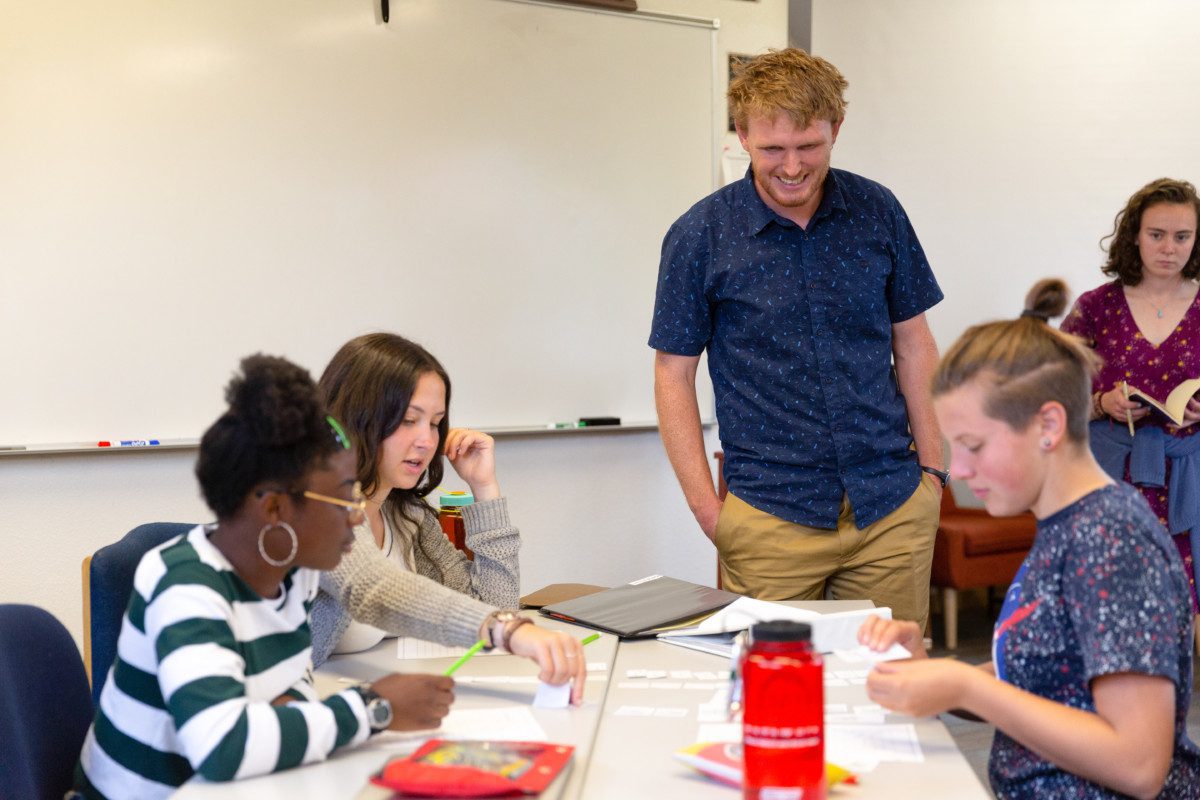
At HMI, all students are exposed to a completely new academic environment where they are challenged by the diversity of perspectives brought by teachers and peers. Small class sizes (an average of ten students) and a focus on student-led discussion create an inclusive environment where every student participates. Our place-based curriculum connects students with the history, culture, and geography of the American West, while covering key topics necessary for junior and senior year academic progressions. Student-teacher relationships develop beyond the classroom through wilderness expeditions and residential life.
Students take either five or six courses at HMI and can earn an ungraded ½ credit for physical education. Many students also participate in community service, particularly during the Fall Semester. If HMI does not offer a course that is necessary for a student’s academic trajectory at their sending school, students have the option to participate in an independent study. Except for special situations, students may not take more than one independent study while at HMI.
For a more detailed description of the courses offered at HMI, please refer to our Curriculum Guide.
Academics on wilderness expedition
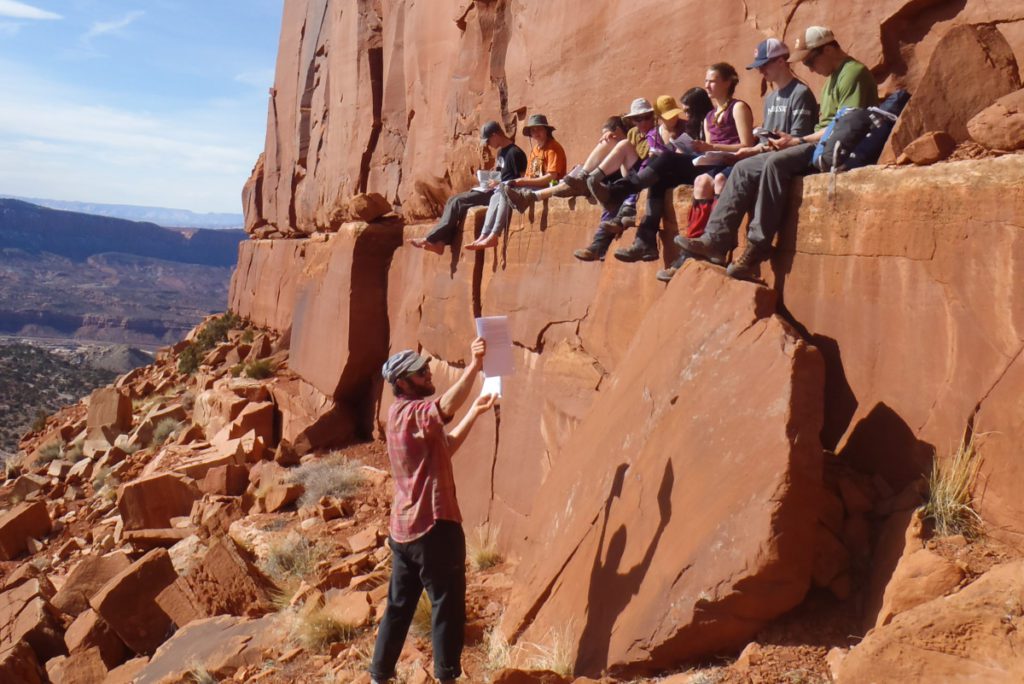
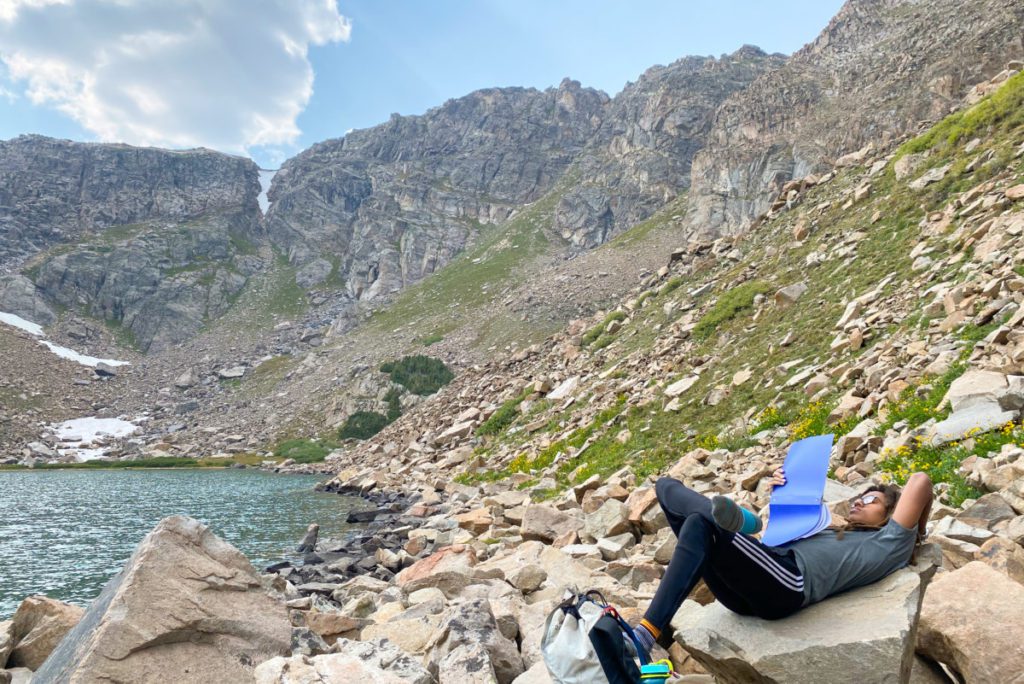
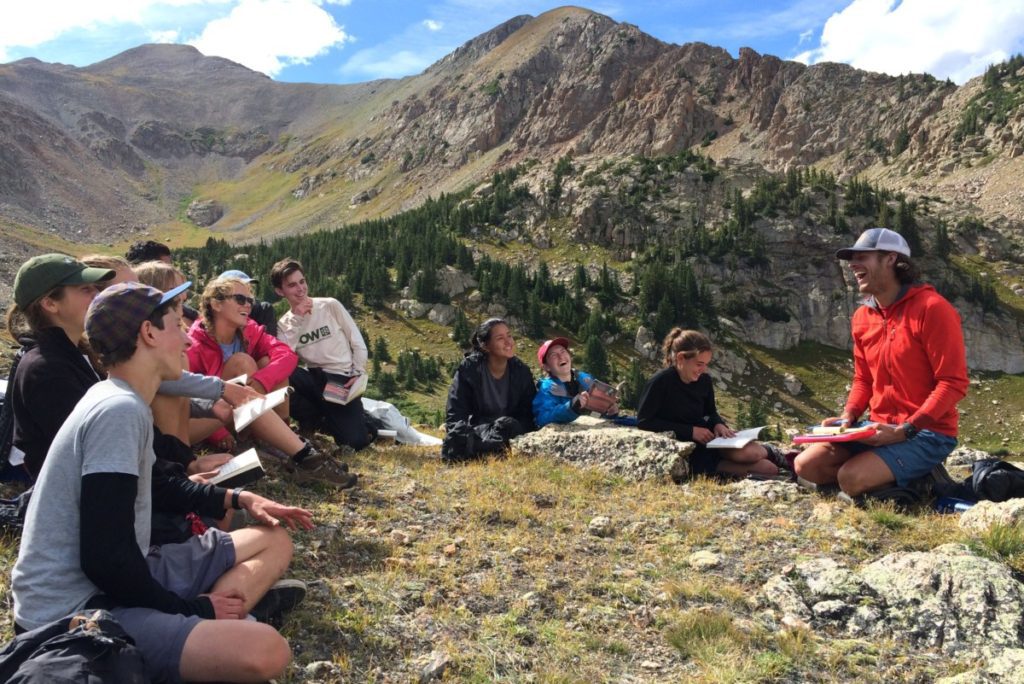
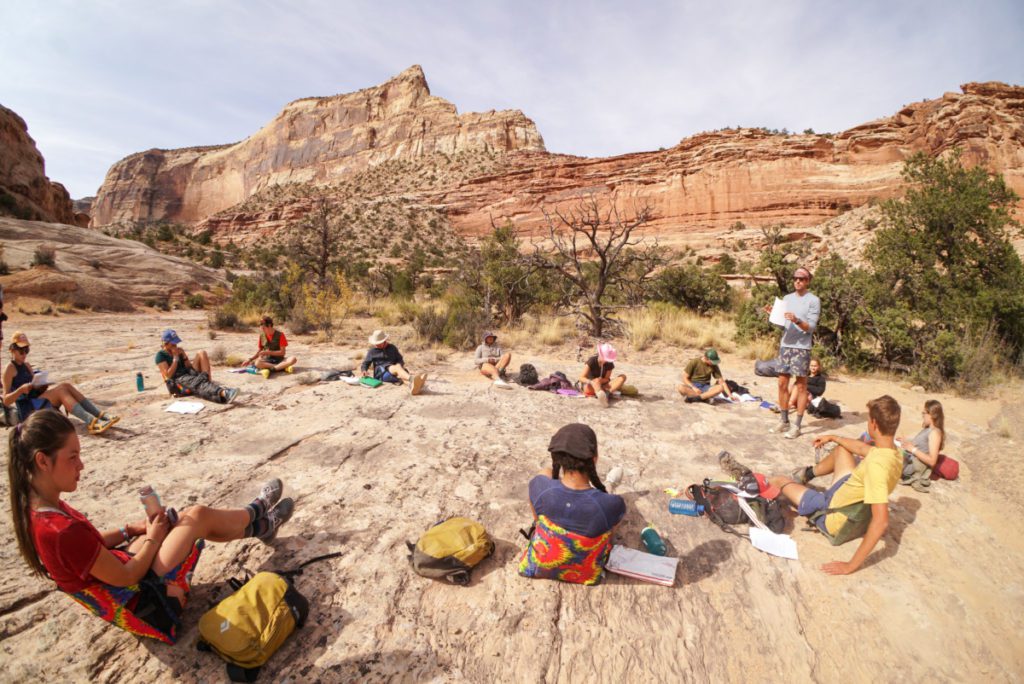
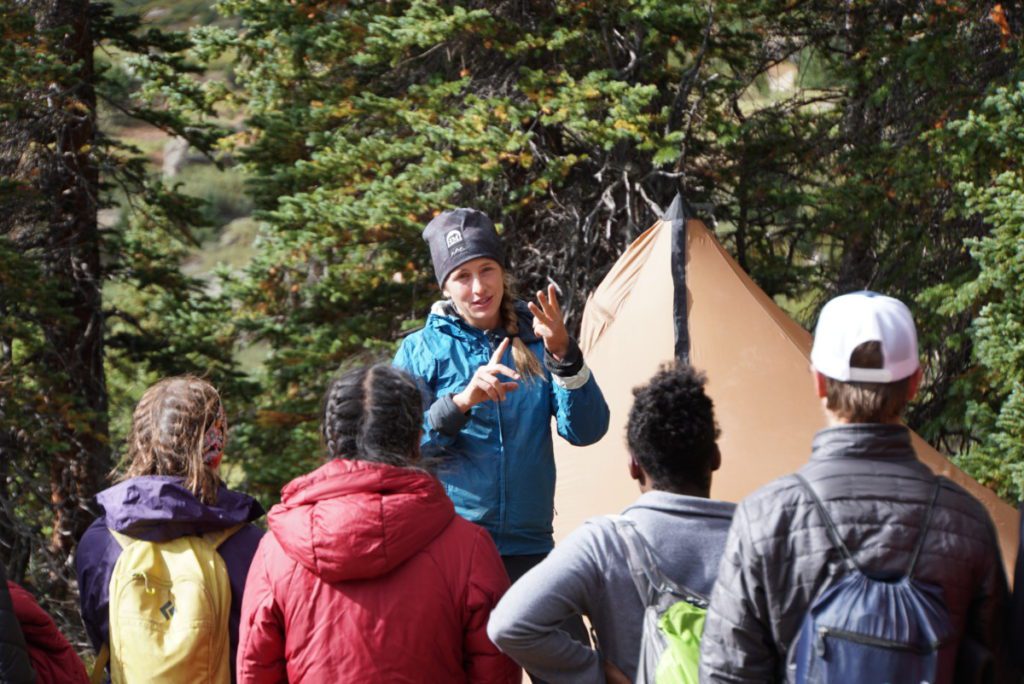

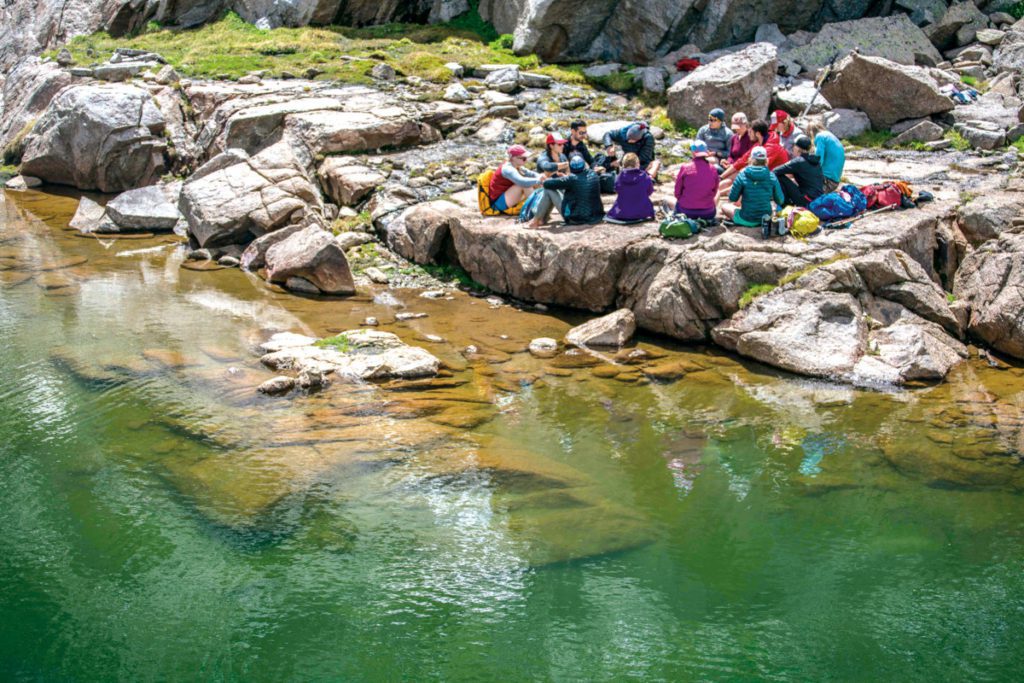


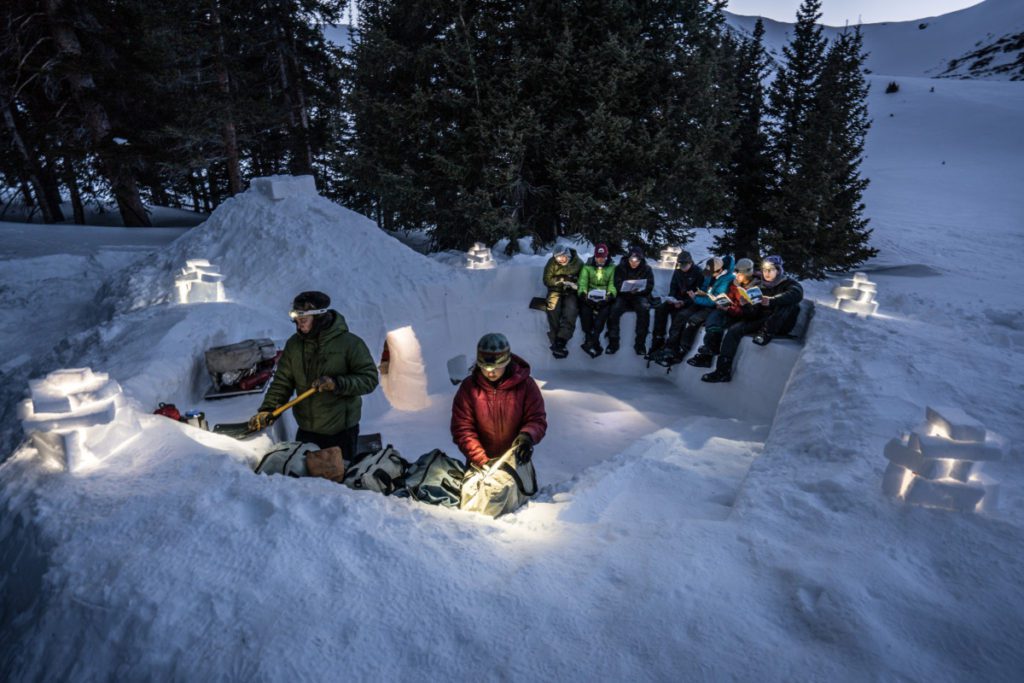
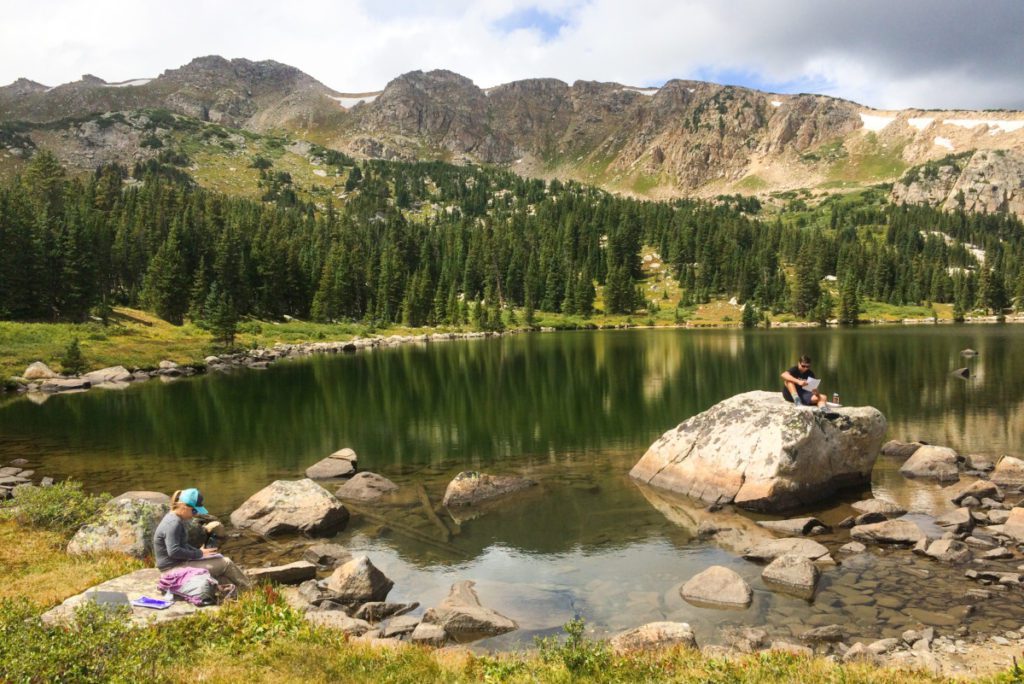
Academics do not pause each time students head out on wilderness expedition. Every class asigns homework that students must finish over the course of the backpacking trip. Instructors lead discussions and science labs with their groups in beautiful outdoor settings. Much of the work is placed-based; it offers students a chance to connect their academics to the natural world around them.


